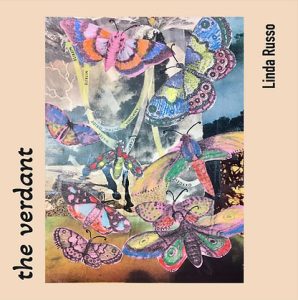The Sewanee Review – Spring 2007
Volume 115 Number 2
Spring 2007
Quarterly
Deborah Diemont
In a world of the increasingly gritty, beyond-experimental, post-post-modern and devil-may-care, The Sewanee Review feels almost old-fashioned in its emphasis on clarity, craftsmanship, and quality. It was a treat to carry it around with me, leave it beside my bed, and, before falling asleep underline stand-out bits of analysis in critical essays. Christopher Clausen’s “From the Mountain to the Monsters” intrigued me from the opening lines: “Take nature as your moral guide, and before long you find yourself haunted by nightmares of monsters. The relation between cosmic nature and human ethical conduct was the most important intellectual problem of the nineteenth century.”
In a world of the increasingly gritty, beyond-experimental, post-post-modern and devil-may-care, The Sewanee Review feels almost old-fashioned in its emphasis on clarity, craftsmanship, and quality. It was a treat to carry it around with me, leave it beside my bed, and, before falling asleep underline stand-out bits of analysis in critical essays. Christopher Clausen’s “From the Mountain to the Monsters” intrigued me from the opening lines: “Take nature as your moral guide, and before long you find yourself haunted by nightmares of monsters. The relation between cosmic nature and human ethical conduct was the most important intellectual problem of the nineteenth century.”
The essay parallels the preoccupation with monsters like Dracula and Mr. Hyde with nineteenth century romanticism, and while going not so far as to say that monsters were an argument against modern science, Clausen does suggest that nineteenth century writers were not convinced of science’s power over the primitive and supernatural. David Mason has a wonderful essay in homage to the poet B. H. Fairchild that argues against critics who have called Fairchild simply a poet of memory; he convincingly shows Fairchild’s work to be an example of Thomas Hobbe’s proposition that “imagination and memory are but one thing.” Dawn Potter’s essay on how her study of Milton’s Paradise Lost has illumined her daily life and its mundane tasks is both engaging and humbling. There are other pieces that warrant comment, but I’ll end with admiration for Deborah Gregor’s poem, “The Dollhouses of the Dead” that imaginatively compares a 17th Century Dutch dollhouse to another doll house or museum arrangement of the attic where Anne Frank hid with her family: “. . . – there in miniature, / was what her father, who survived the war, // remembered.. . . // The pictures his youngest had cut from magazines / and pasted to the wall of her narrow room – / O dead starlets of the thirties, / may history be kind to you here.” [www.sewanee.edu/sewanee_review/home]




